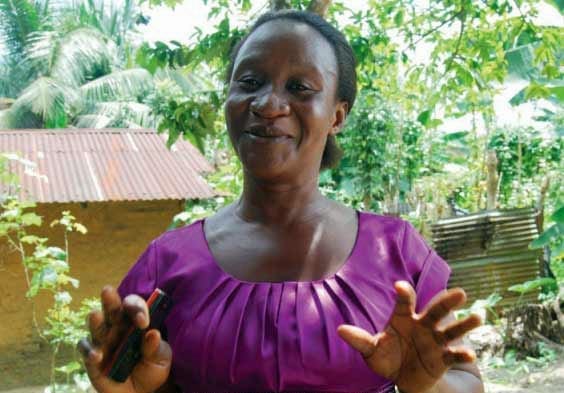In Nigeria’s oil-rich Niger Delta, where the nation’s vast oil revenue has not benefited working people, who typically are paid less than $2 per day, women and children are especially vulnerable.
Yet in the face of corruption, environmental degradation, gender discrimination and human rights abuses, a unique, women-led grassroots coalition is training and mobilizing women in urban and rural communities, empowering them to hold local lawmakers accountable and achieve concrete goals in their communities.
Women Initiative for Transparency and Social Justice (WITSOJ), a coalition of union and community groups, formed in 2007, inspired by a Solidarity Center workshop on women’s empowerment and civil-society participation in Warri, a major oil city in Delta State. Since then, WITSOJ has trained more than 5,000 women and young people in hands-on workshops.
“Because of the way the government has been running its affairs (local residents) think they should beg for health care services, schools, roads,” said Sarah Emmanuel-Apia, a lawyer and WITSOJ leader. “We show them the (Nigerian) constitution and the budget and (show them that) these things should come to them even without asking—and if they don’t get it they should come together to make their demands.”
Following one such WITSOJ training in 2011, hundreds of women from several communities marched to the local council building in Oyigbo, a town northeast of Port Harcourt, to demand a health care clinic. Local officials had ignored their requests for years, but empowered by WITSOJ, the women refused to be turned away. Ultimately, the government renovated the area’s dilapidated health clinic and also built a well-equipped health center at nearby Obuakpu.
“Maternal mortality is very high here,” said Emmanuel-Apia. “It’s normal here for women to die giving birth. If bringing the health center will help them live longer, we will support it.”
Emmanuel-Apia and others in WITSOJ are featured in a new Solidarity Center report, “Nigeria: Empowering Women, Transforming Society,” available in English and Spanish.
As a coalition of more than 20 local organizations, WITSOJ regularly taps into the expertise of its members, such as Women in PENGASSAN, the Petroleum and Natural Gas Senior Staff Association of Nigeria.
Ijeoma Dom-Nwachukwu, national chairwoman of Women in PENGASSAN, says the union partners with WITSOJ to fight for “the women who are marginalized in rural areas.
WITSOJ coordinator Dr. Jennifer Spiff says the union’s deep roots in local communities adds credibility to WITSOJ. “The partnership with the union “gives WITSOJ the leverage to be trusted as an organization owned by the masses,” she said.
“Working people see trade unions as representing the people, and believe that WITSOJ cannot be hijacked by politicians, since it has a union collaboration.” The coalition also includes the Nigeria Labor Congress (NLC) and the Trade Union Congress of Nigeria (TUC).
Through its outreach, “WITSOJ has made women realize the need for gender equality, and that most times, women can become as good ambassadors in leadership as their male counterparts,” said journalist Gold Minimah, an active WITSOJ member.
Victory Goodluck, a WITSOJ member and farmer from the Ihuike community in Ahoada East Local Government, points out that the organization’s strategy to focus on women works “because women are instruments of change.”
The report is part of Catalysts for Change, a Solidarity Center series highlighting the working people, their unions and activists who are advancing worker rights and greater equity in their societies.

